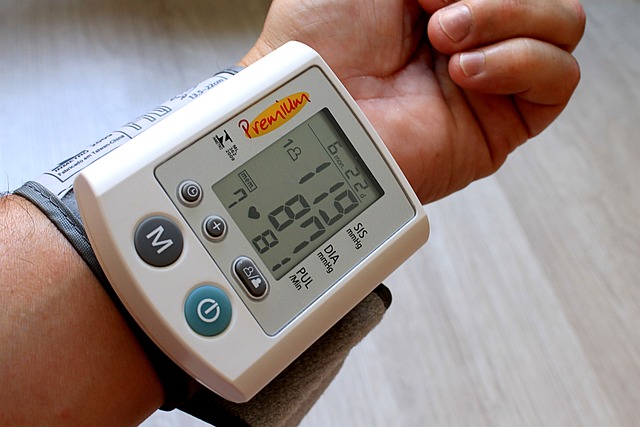
Blood pressure is a vital indicator of cardiovascular health, yet many people are unaware of what it is or why it matters.
Table of Contents
What is Blood Pressure?
Blood pressure is the force exerted by circulating blood against the walls of your arteries. It consists of two numbers: systolic pressure (the top number) and diastolic pressure (the bottom number), measured in millimeters of mercury (mm Hg). Systolic pressure measures the pressure in your arteries when your heart beats, while diastolic pressure measures the pressure when your heart is at rest between beats.
Why is Blood Pressure Important?
Maintaining a healthy blood pressure is crucial because high blood pressure (hypertension) can damage your arteries and lead to serious health problems, such as heart disease, stroke, and kidney disease. On the other hand, low blood pressure (hypotension) can also cause health issues, including dizziness, fainting, and shock.
How is Blood Pressure Measured?
Blood pressure is measured using a device called a sphygmomanometer. A cuff is wrapped around your upper arm and inflated to restrict blood flow. The pressure is then slowly released, and the healthcare provider listens to your pulse using a stethoscope while noting the measurements. The systolic pressure is recorded when the first sound of blood flow is heard, and the diastolic pressure is recorded when the sound disappears.
Understanding Blood Pressure Readings:
- Normal: Less than 120/80 mm Hg
- Elevated: 120-129/<80 mm Hg
- Hypertension Stage 1: 130-139/80-89 mm Hg
- Hypertension Stage 2: 140 or higher/90 or higher mm Hg
- Hypertensive Crisis: Higher than 180/higher than 120 mm Hg
Managing Blood Pressure
Maintain a Healthy Diet:
Eat a diet rich in fruits, vegetables, whole grains, and lean proteins, and low in saturated fats, cholesterol, and sodium.
Stay Active:
Regular physical activity can help lower blood pressure. Aim for at least 150 minutes of moderate-intensity exercise per week.
Maintain a Healthy Weight:
Being overweight or obese can increase your risk of high blood pressure. Losing weight through diet and exercise can help lower your blood pressure.
Limit Alcohol Intake:
Drinking too much alcohol can raise your blood pressure. Limit alcohol consumption to moderate levels (up to one drink per day for women and up to two drinks per day for men).
Quit Smoking:
Smoking can damage your blood vessels and raise your blood pressure. Quitting smoking can improve your overall cardiovascular health.
Manage Stress:
Chronic stress can contribute to high blood pressure. Find healthy ways to manage stress, such as yoga, meditation, or spending time with loved ones.

Foods for Blood Pressure
High blood pressure, also known as hypertension, is a common health issue affecting millions worldwide. While medication can be necessary in some cases, incorporating certain foods into your diet can also help manage and lower blood pressure naturally.
Leafy Greens:
Leafy greens such as spinach, kale, and Swiss chard are rich in potassium, a mineral that helps your body balance sodium levels. This, in turn, can help lower blood pressure. Additionally, these greens are packed with antioxidants, fiber, and other nutrients that support overall heart health.
Berries:
Berries like blueberries, strawberries, and raspberries are high in antioxidants, which can help reduce inflammation and improve blood vessel function. They are also a great source of fiber, which is beneficial for heart health.
Oats:
Oats are a good source of soluble fiber, which can help lower cholesterol levels and regulate blood pressure. Incorporating oats into your diet can also help you feel full longer, which may aid in weight management, another factor that can affect blood pressure.
Fatty Fish:
Fatty fish like salmon, mackerel, and sardines are rich in omega-3 fatty acids, which have been shown to lower blood pressure and reduce inflammation. Aim to include fatty fish in your diet at least twice a week for optimal heart health benefits.
Seeds:
Flaxseeds, chia seeds, and hemp seeds are excellent sources of omega-3 fatty acids, fiber, and protein. These seeds can be easily added to smoothies, yogurt, or salads to help lower blood pressure and improve overall heart health.
Beans and Lentils:
Beans and lentils are high in fiber and protein, making them a heart-healthy alternative to animal protein. They are also rich in potassium and magnesium, two minerals that are important for regulating blood pressure.
Garlic:
Garlic has been used for centuries for its medicinal properties, including its ability to lower blood pressure. It contains allicin, a compound that has been shown to relax blood vessels and improve blood flow.
Nuts:
Nuts like almonds, walnuts, and pistachios are rich in heart-healthy fats, protein, and fiber. They also contain magnesium, which plays a role in regulating blood pressure.
Olive Oil:
Olive oil is a key component of the Mediterranean diet, which has been associated with lower rates of heart disease and hypertension. It is rich in monounsaturated fats and antioxidants, which can help lower blood pressure and improve overall heart health.
Avocados:
Avocados are a great source of potassium, which helps regulate blood pressure. They are also high in monounsaturated fats, which are beneficial for heart health. Incorporating avocados into your diet can help lower blood pressure and reduce the risk of heart disease.
A Quick Review
incorporating these 10 heart-healthy foods into your diet can play a significant role in managing and lowering blood pressure naturally. Along with regular physical activity and a balanced diet, these foods can help you maintain a healthy heart and overall well-being.

прокат яхт дубай яхты в дубае